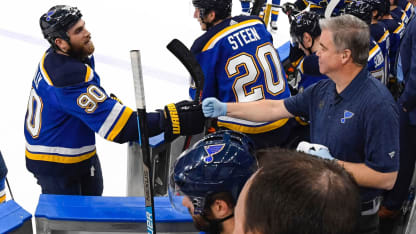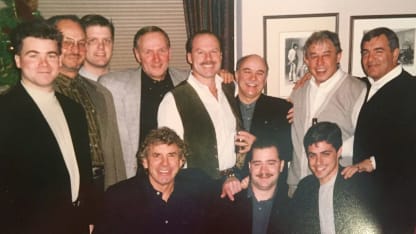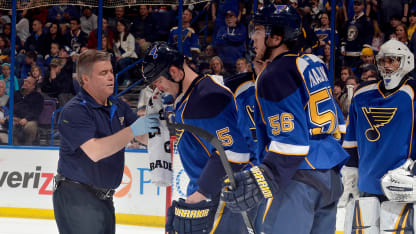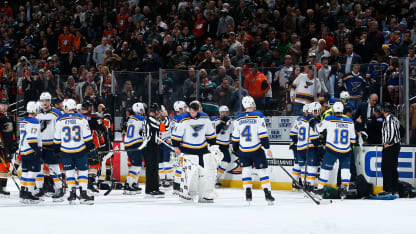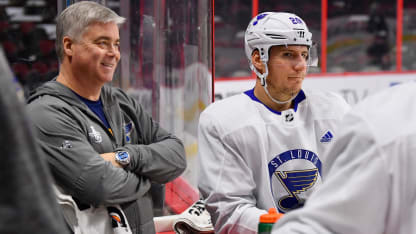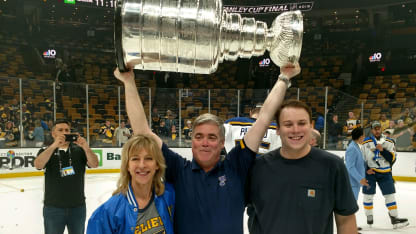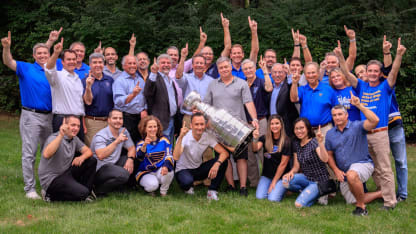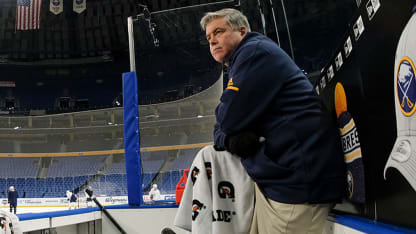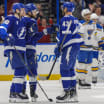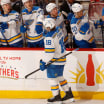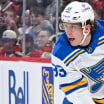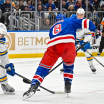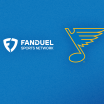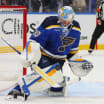Some of the biggest names in hockey have come to Barile for advice when dealing with injuries and extending their playing careers.
Wayne Gretzky, Martin Brodeur, Al MacInnis, Grant Fuhr, Keith Tkachuk, Doug Weight and Curtis Joseph are just a few of the players Barile has worked with, and that doesn't even include the legendary coaches like Keenan, Joel Quenneville, Ken Hitchcock and Craig Berube, who each guided teams to Stanley Cup championships.
"There's a lot of things you can learn from guys like that, but one of them is to treat everybody well," Barile said. "Whether a player is up here for a cup of coffee or they're headed for the Hall of Fame, you treat them exactly the same. Some of the things I learned from guys like Al MacInnis and a lot of other guys who deserve to be in the Hall of Fame but maybe don't have the numbers is their work ethic. It can't be matched, but you do your best to match it every day."
"I just think that Ray is a special person, because he's always there for you," Hitchcock told stlouisblues.com. "You trust him with your health, your family's health and the players' health. You have full trust in Ray that he's going to do the right thing for you and the organization, and it's a great feeling. It's a security blanket. They're hard to find, people like that. I'm really proud to have known him as my friend."
It's obvious that Barile has made a good impression on many of the players he's worked with. His long tenure with the Blues is enough to tell you that, but he's also been called upon to work for Team USA at the Winter Olympics, the World Championships, the World Junior Championships and even the World Cup of Hockey in 2016.
Barret Jackman said he believes he has had every injury that hockey players get, from broken hands, broken feet, sprained ankles and separated shoulders, and Barile's extensive knowledge about those injuries made all the difference in getting him back on the ice as soon as possible. That knowledge is also the reason he thinks Barile has been called upon so often for international competition.
"I blew out my shoulder and missed 70 games or something in my second year. You name it and I've had it," Jackman said. "I was working closely with Ray probably 95 percent of the days I was at the rink. He is a guy that never takes a day off, and even on the off days he's at the rink doing treatments for the players. There's a reason he's at 2,000 games and they've all been with the same organization."
"Ray doesn't just show up every day - he comes in with expertise and his knowledge and the best of what he's got," said Colton Parayko, who is currently rehabbing an injury that has kept him out of the lineup for weeks. "I think we've gotten along ever since the beginning when I came to St. Louis. We clicked really well. When I was a younger player, he was easy to approach, which I really appreciated. If I needed anything, he was there for me and took care of it for me. To have someone that has your back like that, knowing he's there for you and cares for you, it goes a long way. He's a good friend."
